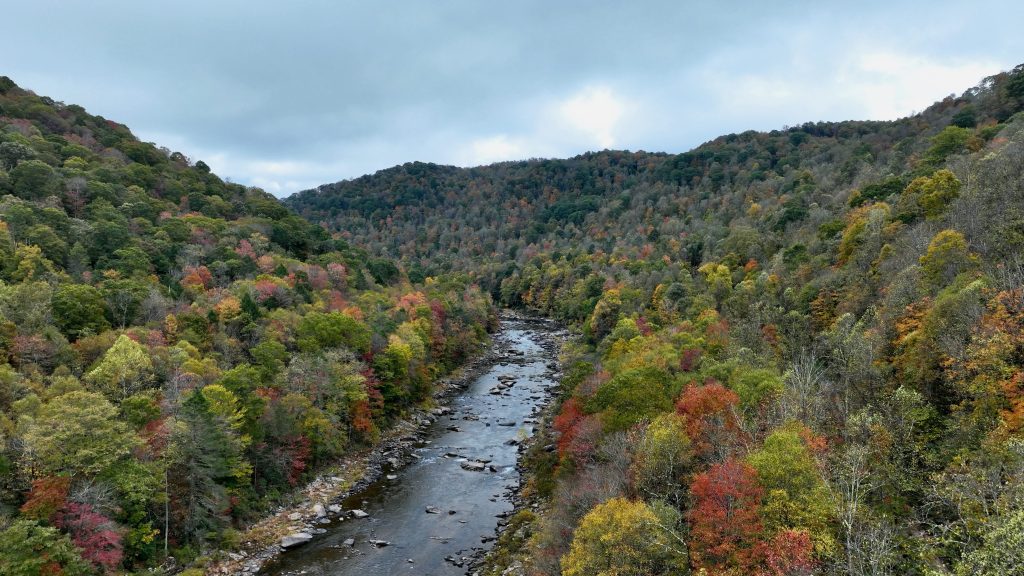State Legislative Updates
While lawmakers in Washington, D.C., might get most of the spotlight, the legislators in state capitols across the region are busy making — and blocking — laws that affect Appalachia’s land, air, water and people. Here are spring updates from state legislatures around the region.
Kentucky
Kentucky
Session convened Jan. 6, adjourned March 24
Perhaps the most publicized and contentious environmental law to pass during the Bluegrass State’s 30-day legislative session was an update to existing oil and gas drilling rules that addresses some of the challenges posed by fracking.
A new energy law creates an Environmental Regulation Task Force to review how electricity reliability in the state is affected by federal environmental regulations. The task force, which environmental groups say is skewed toward industry, will produce a report by December 2015.
Gov. Beshear also signed a bill that helps local governments finance water and energy efficiency projects. A committee hearing on the Clean Energy Opportunity Act, which would require Kentucky utilities to meet a certain portion of electricity demand through energy efficiency and renewables, was cancelled due to a March snowstorm, but a hearing during the legislative interim is expected.
It will be more difficult for timber companies designated as “bad actors” to operate in the state without paying civil penalties and remediating logging sites under another new law. And new rules regarding how local governments can handle stray horses and cattle provide guidelines for identifying owners and for gelding, or sterilizing, male animals if an owner is not found. — By Molly Moore
North Carolina
Session convened Jan. 14, adjourns early July
Since the legislative session began in January, the rules regulating oil and gas drilling in North Carolina went into effect and the state’s long-standing moratorium on fracking was lifted. A bipartisan bill introduced to “disapprove” the rules was left to expire in March.
The first law passed this session clarifies technical issues with the Coal Ash Management Act passed last September and removes a previous legal requirement that the state develop rules to limit air pollution from fracking operations. A three-judge panel ruled in favor of Governor McCrory, who claims that the Coal Ash Management Commission is unconstitutional because there are more legislative appointments than executive. The ruling means that progress cleaning up coal ash throughout the state will stall. It also affects the commission that wrote the fracking rules, which could impact the validity of the drilling regulations.
The bipartisan Energy Freedom Bill, which would open up the state to third-party sales for solar projects, was introduced in March. The bill is supported by environmental groups, large businesses and the military, but strongly opposed by Duke Energy, which currently has a monopoly on the state’s power production.
Though polls show that North Carolinians overwhelmingly support renewable energy options, Gov. McCrory continues to push for opening the coast to offshore oil drilling, which is a possibility now that President Obama is allowing states to pursue offshore drilling in the Atlantic. — By Sarah Kellogg
Tennessee
Session convened Jan. 13, adjourns late April
At the end of March, a bill to transfer oversight of surface mining in Tennessee from federal to state regulators had passed through a state Senate committee and state House subcommittee. The Primacy and Reclamation Act of Tennessee would end the federal Office of Surface Mining’s 31-year term as the regulatory agency charged with ensuring that coal mining operations in the state abide by surface mining and mined-land reclamation laws. That responsibility would pass to the Tennessee Department of Environment and Conservation. In 1984, the federal agency assumed oversight of surface mining in Tennessee due to the state’s poor enforcement of environmental laws.
The Tennessee Mining Association says a return to state regulation will lead to faster approval of mining permits. Opponents of the bill argue that fees levied on coal companies to pay for the costs of administering the regulatory program would be insufficient, and leave the state bearing an added cost.
A bill to provide a general permit for noncommercial gold mining appears idle for the year; opponents were concerned the bill could damage water quality and trout populations in the Cherokee National Forest. And a bill to help finance renewable energy and energy efficiency was moving through legislative committees at press time. — By Molly Moore
Virginia
Session convened Jan. 14, adjourned Feb. 27
In the 2015 legislative session, Virginia electric utilities lobbied for what they described as a partial rate freeze, though consumer advocates said that average electric bills could still increase and the legislation would make it more difficult for regulators to catch utility over-earnings or require refunds. But amendments on the same bill declared solar energy development and energy efficiency programs as in the public interest, and the legislation passed.
Another bill would have joined Virginia into a regional network of states limiting greenhouse gas emissions. Through pollution allowance auctions, this initiative would raise funds for efforts such as coastal adaptation to sea level rise and renewable energy workforce training. The bill did not receive a vote, but this concept will likely be reintroduced next year.
Two new laws that passed will increase the size of nonresidential solar installations that can sell power back to the grid and encourage renewable energy and energy efficiency for multi-family and commercial buildings.
Meanwhile, Gov. McAuliffe reiterated his strong support for the Atlantic Coast Pipeline, one of three proposed pipelines that would, if built, carry fracked gas across ecologically sensitive areas. A bipartisan bill would have prevented interstate companies from entering and surveying private property without the written consent of the owner, but that legislation failed to pass, as did an attempt to make public service corporations using eminent domain subject to the Freedom of Information Act. — By Hannah Wiegard
West Virginia
Session convened Jan. 14, adjourned March 14
Governor Earl Ray Tomblin received criticism from mine-safety and environmental groups for signing the Coal Jobs Safety Act, a law that United Mine Workers of America President Cecil Roberts said “marks the first time in West Virginia history that our state has officially reduced safety standards for coal miners.” The legislation also prevents citizens from suing coal companies for violating Clean Water Act standards if those standards were not specified in the state mine permit, along with several other industry-supported changes to environmental rules.
The state also lowered the number of aboveground chemical storage tanks that need to comply with safety regulations by roughly 75 percent — the storage tank rules passed in the wake of the 2014 Elk River chemical spill. The legislature did agree to strengthen water quality standards for a 72-mile stretch of the Kanawha River so that it can be used as a backup drinking water source for the now-notorious Elk River intake.
A bill that would have allowed “forced pooling” for horizontal oil and gas wells narrowly failed. Forced pooling, which is currently allowed for vertical wells in the state, requires all mineral owners to lease their land for drilling if a certain percentage of other mineral owners in an drilling tract agree.
Two bills intended to expand the scope of agricultural cooperatives and make it easier for growers to sell at farmer’s markets also passed. — By Molly Moore
Related Articles
Latest News

Leave a comment
Your email address will not be published. Required fields are marked *





Leave a Comment